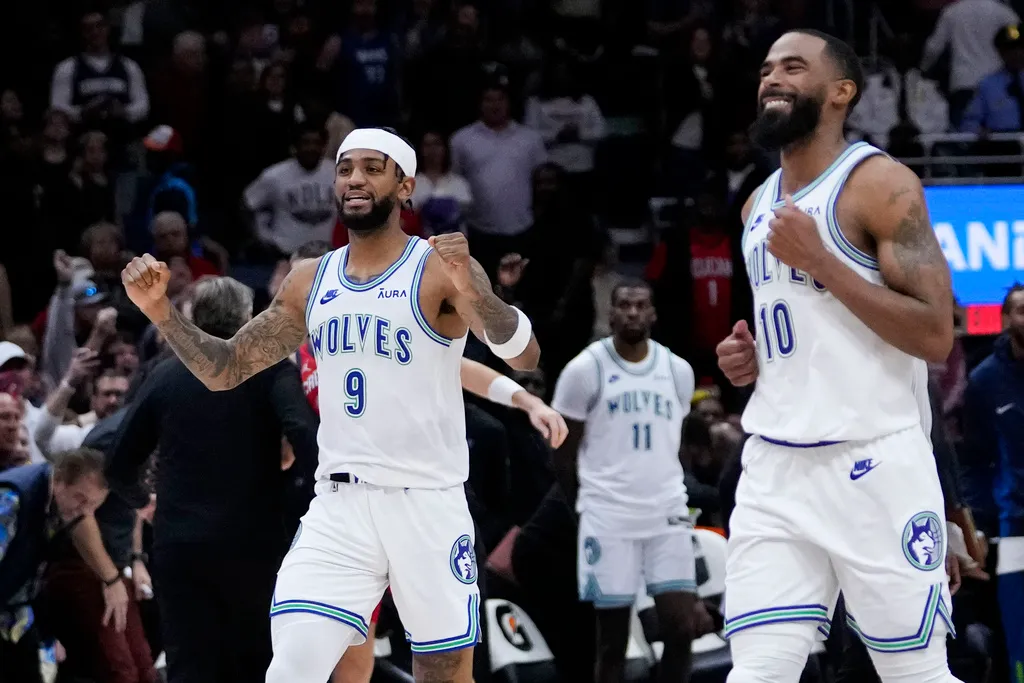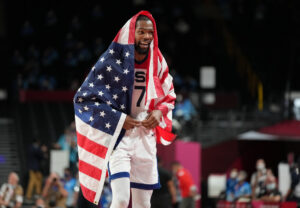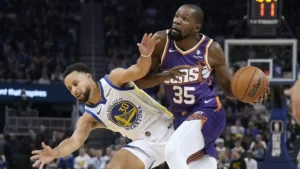
PHOENIX — Anthony Edwards’ playmaking ability is on full display in Minnesota’s first-round playoff series against Phoenix. The guard is constantly making the Suns pay for loading up to stop him by generating easy looks for teammates. And when Phoenix shows any cracks, Edwards finds buckets of his own.
It’s a pristine mix of smarts and aggression borne of film sessions with player development coach Chris Hines.
“I just know the game plan is (the Suns) putting up the high wall; put two on me,” Edwards said. “Therefore, when Rudy (Gobert) rolls, it’s going to pull one side in, so one corner is going to be open, or they’re going to bump Rudy on the roll, so the wing is going to be open. Or, if they don’t put two on me, I’m just going to attack.”
It’s a clever offensive process, and that’s what Timberwolves coach Chris Finch has tried to push the 22-year-old toward for the better part of the past two years. Prior to this, Edwards was known to force the issue and attack on his own, even when rival defenses were stacked to specifically stop him. It led to tough shots and mistakes.
Both have been fairly limited in this series, which the Wolves lead 3-0 going into Sunday night’s Game 4 in Phoenix.
Finch said this is the most controlled stretch of basketball he’s seen Edwards play.
“He’s a smart player. He just has a lot to learn, and he’s learned it a lot,” Finch said. “He’s benefiting, and we’re really benefiting.”
Edward’s epiphany didn’t take place in this series. The message seemed to truly sink in when Karl-Anthony Towns went down with a meniscus injury in March, which shelved the all-star big man for a month.
“When KAT goes down, it definitely puts more pressure on everybody because he’s a walking 25-point and 10-rebound guy,” Edwards said. “It was on me to get my guys involved. Get them easier looks and still be able to be bold. I’m just trying to do it a little bit more when he’s out.”
That mentality went beyond Edwards. Everyone carried a bit more of the scoring load in Towns’ absence. Mike Conley became more aggressive defensively. Ditto for Nickeil Alexander-Walker, Naz Reid, Jaden McDaniels, and Kyle Anderson.
Without Towns, the ball had to move more for Minnesota to create good looks. And when it did, everyone gained.
The production from all of “the others” soared. And so, too, did their faith. Suddenly, the role players feel it’s their place to play strongly on offense. Conley, who scored 10 points in the second quarter of Game 3, noticed the starts of the second and fourth quarters were “a time when I could be more aggressive. Ant sits there for a little bit, and we’ve got a group of guys out there that just move the ball, and whoever’s got it going has it going. Tonight was one of those nights where I just needed to be aggressive and try to look for my attack a little bit. Our team needed it, and I think it helped bridge that gap for a little bit.”
That’s a rhythm that was established when Towns was out of action.
“We’re not necessarily changing the ways we played, or guys haven’t necessarily deferred,” Finch said. “Kind of like a little brother growing up. They’re a better version of who they’ve always been. They have the confidence to play like that; there’s no reason to take a back seat to anybody.”
That was something Alexander-Walker predicted when Towns’ return was close at the end of the regular season.
“I think his being out has allowed everyone to step up and play and have roles and get going for the postseason. I think the playoffs definitely show—and my career is a testament to that—that you never know what you might need,” Alexander-Walker said in the final week of the regular season. “And just being able to be available and be providing, guys stepping up big, it’s good to get their game reps now.”





